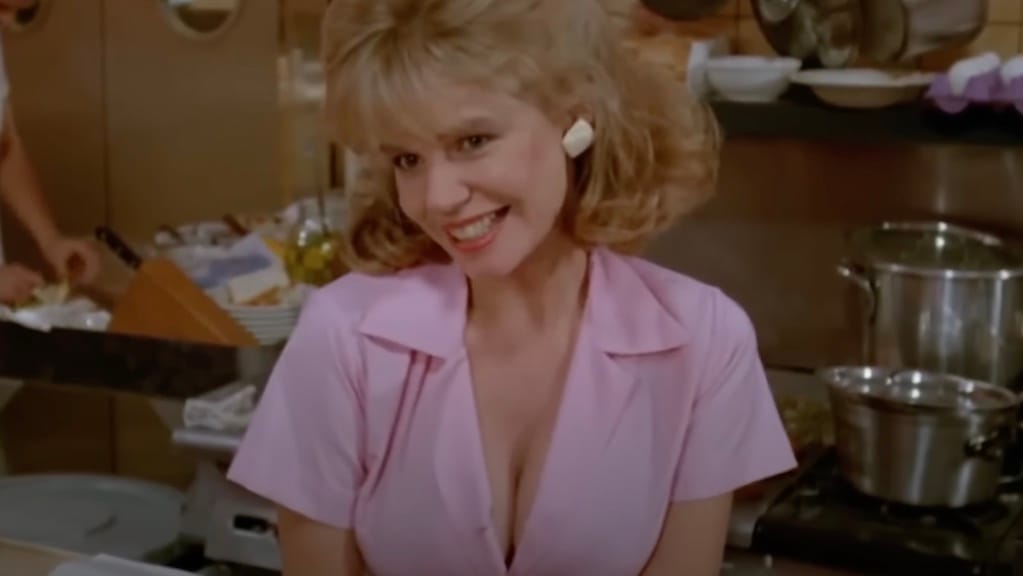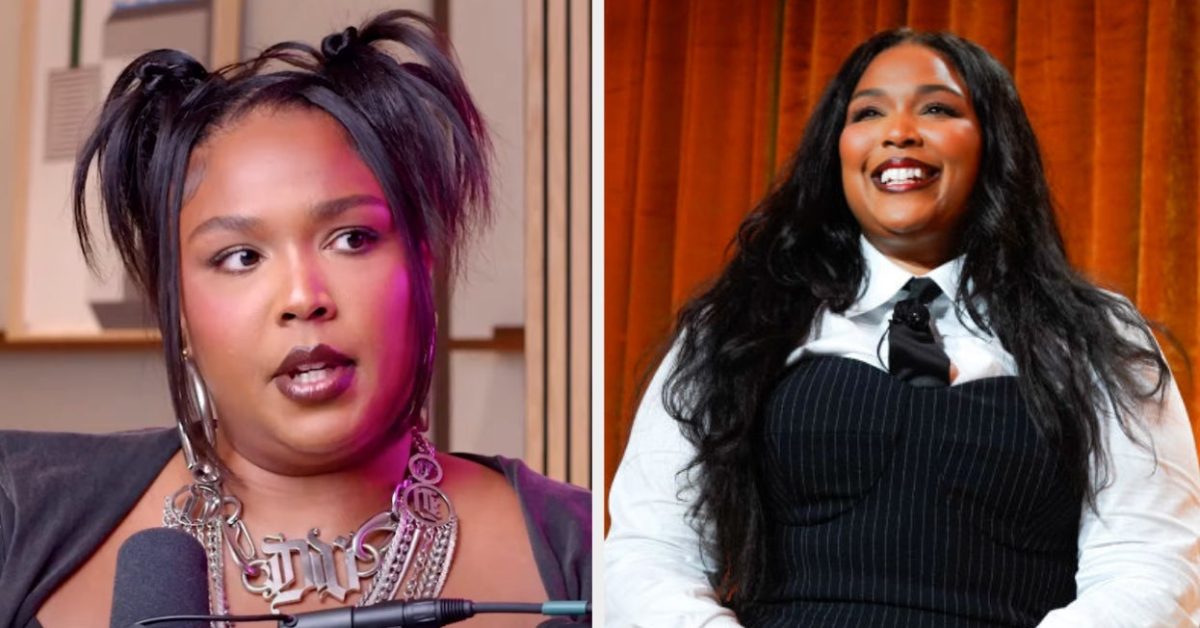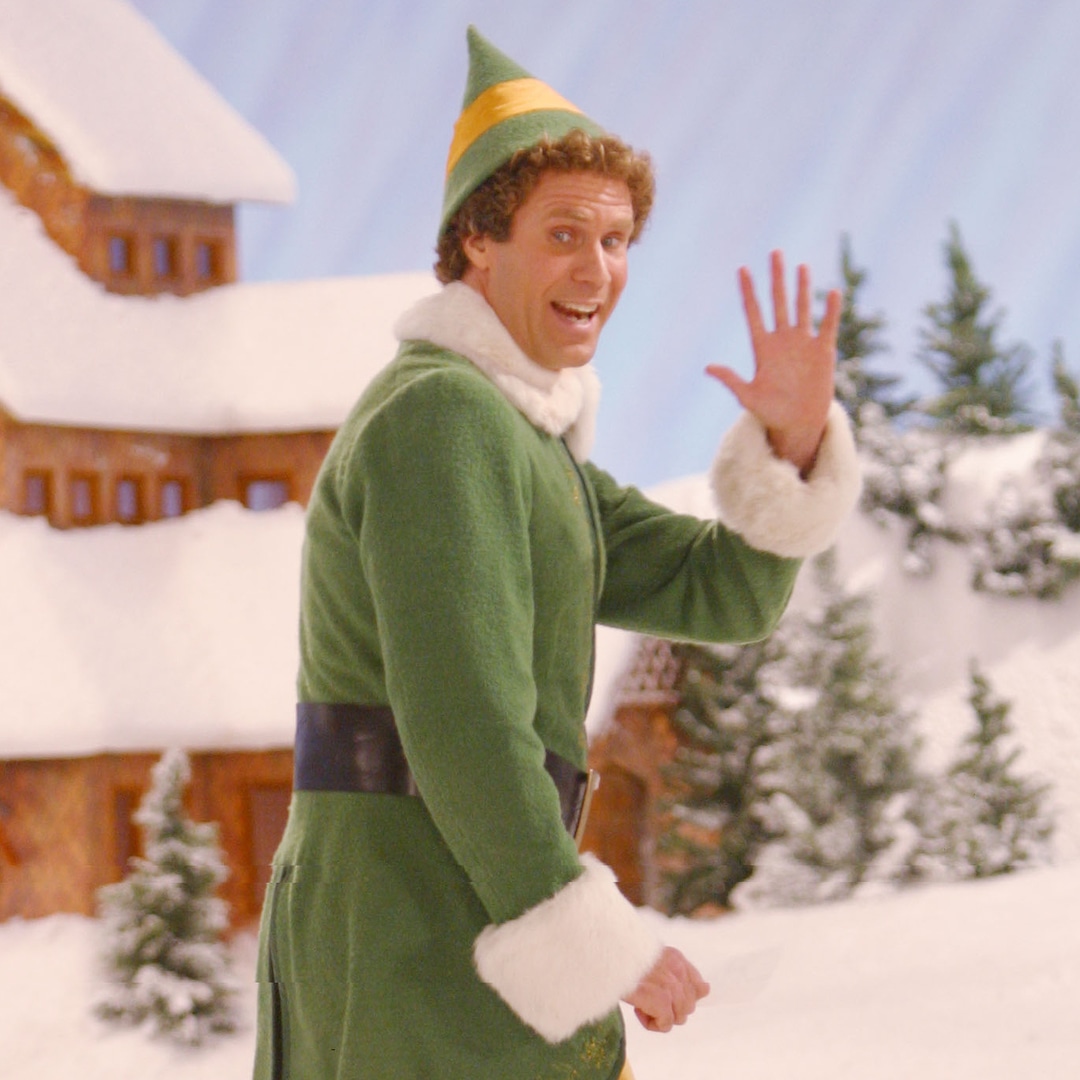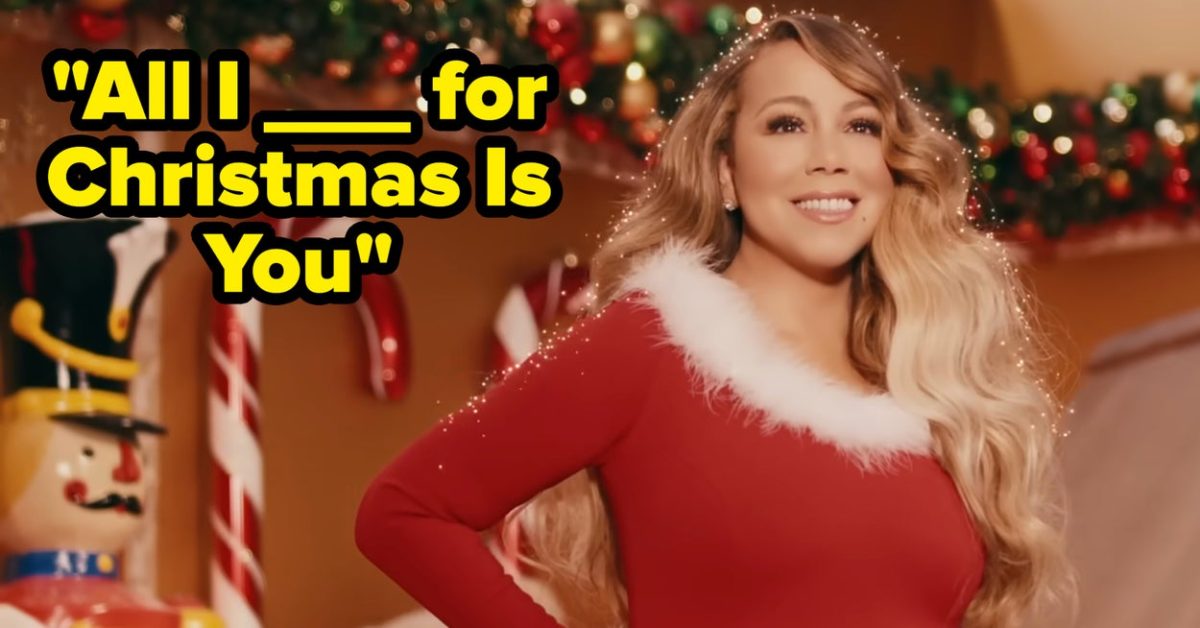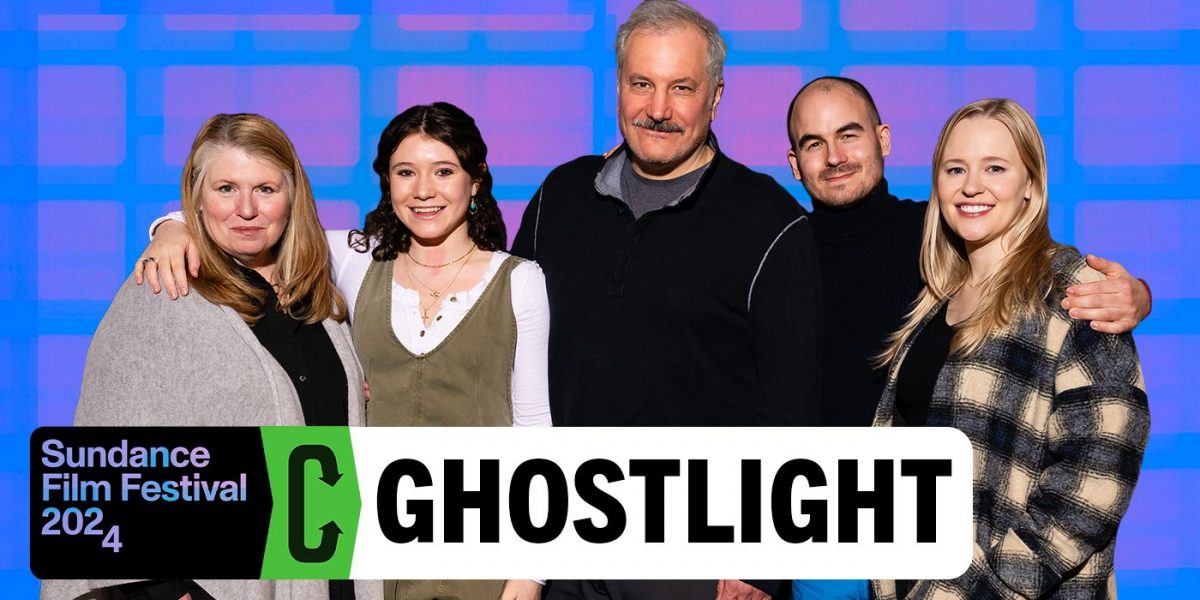
Meet the Wildly Charming Real Family That Stars in ‘Ghostlight’
Feb 8, 2024
The Big Picture
Collider’s Perri Nemiroff sits down with the team behind Ghostlight at the 2024 Sundance Film Festival. Directors Kelly O’Sullivan and Alex Thompson and stars Keith Kupferer, Tara Mallen and Katherine Mallen Kupferer discuss making their festival gem that was just scooped up by IFC Films. Ghostlight follows a construction worker who unexpectedly joins a local theater’s production of Romeo and Juliet.
A number of films made a whole lot of noise at the 2024 Sundance Film Festival, films like A24’s highly anticipated Love Lies Bleeding and It’s What’s Inside which sold to Netflix for a whopping $17 million. They’re both fantastic films well deserving of their buzz and acclaim, but there’s a small indie gem that started to make waves at the film festival that’s not to be missed, a film that rocks some of the very best performances of the entire festival. It’s Ghostlight from directors Alex Thompson and Kelly O’Sullivan, a movie that secured North American distribution from IFC Films and Sapan Studio.
Keith Kupferer leads as Dan, a construction worker struggling to power through a family tragedy who’s become increasingly cut off from his wife and daughter, roles that are filled by Kupferer’s real life family, his wife Tara Mallen and their daughter Katherine Mallen Kupferer. Dan finds comfort, hope and healing from one of these most unexpected places, a local theater company putting together a low-rent production of Romeo and Juliet.
Ghostlight is an incredibly charming and emotional film that highlights the power of storytelling as Dan recognizes parallels between his own life and the drama unfolding on stage. With O’Sullivan, Thompson, and the Kupferer-Mallen family in Park City for Ghostlight’s world premiere, the group visited the Collider interview studio brought to you by Film.io to discuss their experience making this gem of a movie. Check out the video interview at the top of this article or the transcript below to learn about how Ghostlight wound up being a surprise next film for Thompson and Sullivan after Saint Frances, to hear about moments when the actors were in awe of what their family members were able to achieve with their crafts, and loads more!
Ghostlight When a construction worker unexpectedly joins a local theater’s production of Romeo and Juliet, the drama onstage starts to mirror his own life. Release Date January 18, 2024 Director Kelly O’Sullivan , Alex Thompson Cast Dolly de Leon , Katherine Mallen Kupferer , Keith Kupferer , Tara Mallen Runtime 110 minutes Main Genre Drama Writers Kelly O’Sullivan
PERRI NEMIROFF: Kelly, a lot of people out there will first learn about your film through the festival. In case someone does not know what Ghostlight is about yet, can you give a brief description?
KELLY O’SULLIVAN: It’s about a construction worker who joins a community theater production of Romeo and Juliet, and the drama on stage begins to mirror his real life. Ba-ding!
Job well done.
O’SULLIVAN: Thank you!
You were very prepared. I always love when someone has a succinct, clear pitch.
O’SULLIVAN: That was our logline! It took us a while to come up with it.
ALEX THOMPSON: Yeah, a lot of texting.
O’SULLIVAN: A lot of texting, and that was the winner.
A question for both of you now, and correct me if I’m wrong on any of this, but I’m curious what it was like figuring out what roles you would assume on this film. On the last one, Alex, you directed, and Kelly, you wrote and starred in it. Why switch things up a little bit here?
O’SULLIVAN: I knew that I wanted to direct with Alex. Because even on Saint Frances, our collaboration kind of wasn’t as clean cut as just, like, director and actor. We’re super collaborative in the way that we work. And I knew that I didn’t want to act in this one, that I just wanted to write and that I wanted to direct as well, and Alex is a really amazing director and producer, and so I really wanted to work with him.
Is there any new tool in your directing toolkit due to having experienced co-directing with someone?
THOMPSON: Oh, certainly. I had an assumption that probably most people do, which is that if you’re co-directing, you’re sort of breaking things up and, between the two of you, you’ve got one director. But really, we became quite unified, and so it was essentially like having 200% of directing. And, I think, new tool …
O’SULLIVAN: What’d you learn? Anything?
THOMPSON: I guess I have to talk to actors now, right? But it’s fun, I learned. No, no, I think just sitting back, letting things play out, trust, all things that have always been there, but I think working with another person kind of takes you out of your ego even more so, which leads to great work.
‘Ghostlight’ Directors on Getting a Second Feature Made: “Don’t Wait for Anybody”
Image via Photagonist at the Collider Media Studio
One more question for the two of you before I throw it to your wonderful ensemble. I’m always interested in hearing about the experience of getting a green light on your second feature after a successful first feature. I feel like a lot of people out there might assume that once you make one good one, it’s easy, but that’s not necessarily the case. What is a misconception about what it takes to get a second film off the ground?
O’SULLIVAN: Just that it’s easy. We had a lot of critical success with Saint Frances and it doesn’t necessarily mean that the money starts rolling in.
THOMPSON: You really just shouldn’t wait for anybody. Don’t wait for anybody because nobody’s coming for you. We raised all the money ourselves, so we essentially green-lit ourselves, and that was nice.
O’SULLIVAN: And this was supposed to be our third feature. There was a second one that we’ve been trying to make ever since Saint Frances with a bigger budget. It took a long time and then the strike happened and we pivoted and were able to move to this one, which was supposed to be our third, which is much scrappier than what our second was supposed to be.
Do you have hopes to circle back to that other one?
O’SULLIVAN: For sure.
It’s Mouse?
O’SULLIVAN: Yeah! That’s right.
I do my homework!
O’SULLIVAN: Good work!
I knew I was gonna want to see more from you.
O’SULLIVAN: Oh, cool. Thank you. Hopefully that one will get made eventually.
Meet the Real Family That Stars in ‘Ghostlight’
Image via Photagonist at the Collider Media Studio
I love the idea of filmmaking families in general, but the fact that you’re a literal family is blowing my mind right now.
I want to ask a question that was deemed a no-no question in the movie — can you each give me a unique technique you use to learn your lines?
KATHERINE MALLEN KUPFERER: That’s gonna be hard for my mom because that takes her a while to learn her lines.
TARA MALLEN: Wow!
O’SULLIVAN: Threw her under the bus.
KEITH KUPFERER: That really wasn’t the question.
KATHERINE KUPFERER: That was just context.
KEITH KUPFERER: I have somewhat of a photographic memory, so I just look at them and they stay in my head.
MALLEN: It’s true. It’s the most annoying thing ever. [Laughs] When he runs lines with us, he learns them within, like, 30 seconds — your lines — and then when you call line, he’s like, “How do you not know this?” And it makes you want to punch him in the face. Truly.
KEITH KUPFERER: And she does punch me in the face.
MALLEN: And I do. Sometimes I have to.
KEITH KUPFERER: Several times. That’s why I look this way. [Laughs]
KATHERINE MALLEN KUPFERER: Oh my god.
MALLEN: This was a beautiful script, and so the lines came really easily. A lot of folks have asked us, along the journey of Sundance, if we improvised a lot, and the truth is, we didn’t because the text that Kelly provided was always right there for us. It came very easily for me personally. And when you ground yourself in the circumstance of the story, the words were just right there for you, so it was seamless. All we had to do every day was show up and it just worked.
That’s one of the highest compliments ever, when someone assumes you improvise because it’s so natural.
O’SULLIVAN: They made the words sound good. There were some clunker lines in there that they just sold really well.
MALLEN: [Mouths] Not true!
How about for you, Katherine? Give me a tip or trick you use.
KATHERINE MALLEN KUPFERER: If I’m trying to memorize multiple scenes, that’s harder for me, so I would try to memorize one and then once we shot that one, I would go on and memorize the next scene so that I wasn’t having to think about multiple, two different scenes, two different lines.
MALLEN: One moment at a time.
O’SULLIVAN: And you had to do Shakespeare.
MALLEN: We did prep the Shakespeare.
KATHERINE MALLEN KUPFERER: I prepped Shakespeare because I do have some Shakespeare monologues in it, and I started doing that before we started filming so that I was kind of ahead on that part.
Image via Focus Features
I want to ask a personal question based on what you’re exploring in this movie. I already mentioned that part of the reason why I love movies and storytelling in general is because sometimes I find it easier to process things I’m going through via a fictional story on screen. For each of you, can you name a movie that came into your life just when you needed it and helped you through something tough?
THOMPSON: I got broken up with in New York a long time ago and I remember walking into an arthouse theater and seeing, like, a 2 pm screening of Sofia Coppola’s Somewhere. Like no one was in there except for two or three retirees, and I just balled, and it was exactly what I needed. I felt so alone and I came out feeling kind of quietly a little less so. That was a great movie moment for me. I’ll never forget that.
I think I could probably picture you at, like, The Quad or something.
THOMPSON: Yeah! I think it was.
I think I saw it there, too!
THOMPSON: There’s, like, bad seats in this theater. There’s columns, so you could have a bad seat, which is unusual for a movie theater.
O’SULLIVAN: To get on the Sofia Coppola train, Lost in Translation was that for me. I think I saw it in college when I was feeling very adrift and I felt very in line with Scarlett Johansson’s character in terms of her kind of loneliness and trying to find her way in a world that she didn’t really understand.
Good examples right there.
MALLEN: Katherine …
THOMPSON: It has to be a Sofia Coppola movie.
KATHERINE MALLEN KUPFERER: A couple of movies that I love, I think Stand by Me is one of my favorite movies.
That’s one of my favorite movies of all time!
Image via Colombia Pictures
KATHERINE MALLEN KUPFERER: I really love that one. I think I like it a lot because of the group of kids and how they become so much closer with each other as the movie takes place. I really do love that movie, and I love River Phoenix, too, so that’s another reason I watch that one.
MALLEN: Mildly disturbing.
KATHERINE MALLEN KUPFERER: But yes, and I’ve never read the Stephen King short story.
I highly recommend.
KATHERINE MALLEN KUPFERER: Yeah, so I’m gonna try and read that one soon, but I watch Stand by Me, I mean, I’ve re-watched it probably like 15 times.
The Generational Impact of ‘Are You There God? It’s Me, Margaret’
Image via Lionsgate
Such a good choice. Just to add to that, you made another movie that’s having that effect on tons of people, Are You There God? It’s Me, Margaret. I have been so, so happy to see all the award season love that that movie is getting.
KATHERINE MALLEN KUPFERER: I know, it’s doing so well right now.
As it should.
KATHERINE MALLEN KUPFERER: And Kelly Fremon Craig is doing really, really well, and that’s really well deserved. I think that she was an amazing director and writer, and so I’m really excited to see everyone doing so well.
MALLEN: Well, she just said mine. [Laughs] The Judy Blume book, Are You There God? It’s Me, Margaret, was a really pivotal moment for me when I read it in third grade and I felt like it really prepared me in such a beautiful way for what was coming. And then I went on, of course, to read all of Judy Blume’s books, and when we were on set making the movie, I had the opportunity to meet Judy Blume. And of course, as I was walking towards her, I just started bawling, and she held my hands and said, “Don’t worry, it happens to all the ladies your age.”
And then when we saw the movie, we went to the premiere this past spring — I remember reading the screenplay and being very disappointed that Rachel McAdams’ character was given so much space in the film because it wasn’t just focused on Margaret, and I loved her bringing in the generations into the film. I loved what Rachel McAdams brought to it and how I could see my own journey as a mom in the film. Judy Bloom said very clearly that day at the premiere that she couldn’t believe it, but she felt the movie was better than the book, and I have to agree.
Image via Lionsgate Films
O’SULLIVAN: Oh my gosh!
MALLEN: And it came at a moment in our lives, during the pandemic, when everyone was so isolated.
KATHERINE MALLEN KUPFERER: Yeah, that was what was really great because, especially for me, I was in my apartment with my parents and then when we flew to North Carolina to film, I’m with all those kids and stuff. So that was really great because we got to hang out.
MALLEN: Be together and be in community, and make a story that had such a huge impact.
KEITH KUPFERER: Well, of course, that movie was very special in our lives, but I think the films that had an impact on me were many, but the ones when I was younger that I watched that had a different impact on me were John Cassavetes films, like Husbands, Woman Under the Influence. Just the way he decided that it wasn’t about the beautiful camera shot, it was about the people in front of the camera, and it didn’t matter if the camera was in focus or if it had film in it, they were gonna do it anyway. There’s an aspect of Alex and Kelly like that, the way they are more interested in what’s going on with the actors and not worrying about the perfect framing or the perfect shot or the more cinematic beautiful shots. I haven’t seen the film yet, so I don’t know what the framings are, but …
MALLEN: There’s a lot of beautiful shots in the film.
KEITH KUPFERER: I assume that, but the techniques that Cassavetes used that I think also are echoed in their work is what I really responded to.
All good examples right there, and I have a feeling that Ghostlight is gonna have that impact on a lot of people when they start to discover it at the festival and then beyond.
The Natural Family Dynamic in ‘Ghostlight’ Was Unscripted
Image via Photagonist at the Collider Media Studio
To get into some specific moments from filming this movie, you’ve already emphasized the wonderful script right here, but I love hearing about the unexpected magic that you can find on the spot. Can you pinpoint the scene that changed the most from script to screen, where something came up in the moment and you ran with it?
THOMPSON: There’s a lot of that.
KEITH KUPFERER: There’s a scene that’s not in the movie that’s like that that was edited out.
O’SULLIVAN: The original cut was two hours and 15 minutes, and we had to lose 20 minutes. We had to lose this beautiful scene where, I don’t even want to get into it, but a piece of magic happened and for a long time we tried to preserve it, and ultimately had to lose it. But there were lots of little moments here and there where an actor would start to do something, especially the family. We would just hear them on our headphones sort of talking to each other, arguing, laughing, and we would say, “Can you just do that again?” And so, a lot of capturing their dynamic as a family was part of that. And I think you gave, Katherine, the line about Leonardo DiCaprio.
KEITH KUPFERER: [Laughs] Yeah.
THOMPSON: There’s an alt about River Phoenix, of course. But yeah, the dinner table scene, I don’t know if you remember where Katherine grabs a champagne bottle. That was the first scene that we heard how powerful the character of Daisy might actually be. I remember just spontaneously crying when you give that final line in that scene, and I looked at Kelly and I was like, “We have to change the way we’re thinking about this.” So the movie that was initially just Dan suddenly became so much more in the way we shot it about Dan and Daisy, about this father and daughter, because of the power and the humor that Katherine brought to it. It just kind of justified opening up this whole costume chest of possibilities.
O’SULLIVAN: There was a scene where they’re getting ready for the deposition where there were originally no scripted lines, and then Tara and Keith were like, “Oh, I would shave for this deposition.” You were like, “I would shave for this.” And we were like, “Well, continuity-wise, we can’t do that,” so they improvised these lines about, “Aren’t you gonna shave?” And he was like, “Oh, I forgot. Shit.” And then you were like, “We don’t have time.” And then Keith was like, “Well, why’d you bring it up?” It was just, like, perfect.
KEITH KUPFERER: [Laughs] A slice of real life there!
O’SULLIVAN: Yeah, there were moments that weren’t scripted that felt like they were so natural, and their dynamic was so rich that we were able to just be like, “Okay, just turn the camera on.”
THOMPSON: We kind of create a little engine with that scene. Katherine’s in the other room and she’s saying, “Come on, come on, come on!” That was the impetus and it’s like, “Okay, explore that.” And then these two have to get ready, and so there’s certain things they have to do. So it’s funny, actually, guys. You did improvise quite a bit.
KEITH KUPFERER: We did, now that you mention it. [Laughs]
THOMPSON: Entire scenes!
Also, when it comes to deleted scenes, I know it’s hard to let them go, but I’m a big believer that you can still feel those deleted scenes influencing everything that does make the finished cut, so there is great value in them.
KEITH KUPFERER: Oh, absolutely.
O’SULLIVAN: 100%. The scene that we had to cut, Sharon tells us a lot about their relationship, that they met when they were really young, and not to make any choices when you’re young because you can’t even grasp consequences.
MALLEN: That’s right! We lose all my backstory.
O’SULLIVAN: I know. But here’s the great thing about your acting; we don’t need it.
For the three of you, again, you’re family. I know you’re all well aware of how talented each other are, but can you each tell me about a time on set when you looked at one another and said to yourself, “I knew you were good, but I didn’t realize you were capable of doing that?”
KATHERINE MALLEN KUPFERER: I know if I let my mom go, she’s gonna steal my answer. So I think for my dad, I think during the deposition scene, during his big, big part, I’ve never seen my dad do stuff like that. It’s usually like, I’ll see him in plays and stuff and he never really gets like that. He never lets that emotional — it’s usually either anger or comedy.
MALLEN: In real life, too.
KATHERINE MALLEN KUPFERER: Yes, in real life, too.
THOMPSON: The many faces of Keith Kupferer.
KEITH KUPFERER: [Laughs] Just two.
KATHERINE MALLEN KUPFERER: But I really loved that moment.
Great example.
MALLEN: I met Keith in college when we were 19 and he was doing a production of the Jack Nicholson play …
KEITH KUPFERER: [One Flew Over the] Cuckoo’s Nest.
Related Jack Nicholson Changed His ‘One Flew Over the Cuckoo’s Nest’ Character For the Better After being cast, Jack Nicholson gave his character a secret motivation.
MALLEN: I’d got dragged to it, and I was like, “This is gonna be terrible …”
KEITH KUPFERER: And it was.
MALLEN: It was a bad production, but Keith came out on stage and I was like, “Who’s that guy?” And, “He’s going to be mine.” And then I took six years to make him fall in love with me.
KEITH KUPFERER: Where is this going? [Laughs]
MALLEN: It’s going in the direction that he’s always been my favorite actor, and every time I see him onstage or on camera, I fall in love with him and it makes me not, you know, divorce him. So I expected him to be as wonderful as he is in this. I love working with him. He’s my favorite scene partner. We’ve done a lot of plays together, and so I anticipated that the whole way through, and I was so excited for Keith to get to show all of the gifts that he has, that I know he has, and so that was really exciting.
But to see Katherine bring the depth that she brings to this film, and to not just play anger or to not just be loud, and as the film progressed towards the end of filming, to play somebody so complicated and empathetic [tearing up] — sorry. It was really moving and exciting, and I’m incredibly proud of her.
O’SULLIVAN: Keith, how are you gonna follow that up?
KEITH KUPFERER: I don’t know how to follow any of that up.
[Laughs] Understandable.
KEITH KUPFERER: I would say that I am also proud of my daughter. The thing that I like about her performance is that she would have these impulses and she’d do something, and sometimes the camera’s rolling, and if it wasn’t, I’d say, “When the camera’s rolling, do that again because that’s honest, and it’s not the normal behavior but it’s not outlandish or out of character.” So, that’s what I always look for. That’s the most interesting stuff to do as an actor is to surprise yourself and surprise the audience, hopefully. And so that was really fun to watch.
And Tara, what she said about being in a scene with me is the same. I trust her implicitly, and there’s nothing that she can do to throw me off. Anything she does just makes me better as an actor. It makes anybody that acts with her better.
You’re all the coolest. This makes me really happy.
O’SULLIVAN: I know! They really are. And this is the way they are. They are this amazing.
It truly fills my heart.
‘Ghostlight’ Empowered Its Stars in Ways They Never Imagined
Image via Sundance
I’m going to end with our Film.io question. I quite love this question. They’re all about putting the creative power in the hands of the artist, so whether it’s on this movie or anything you’ve done in the past, can you give me an example of a time when someone gave you the creative power, and maybe it was a time when you didn’t expect to get it?
O’SULLIVAN: Alex Thompson producing Saint Frances, because I never would have had that movie made by anybody else. I don’t think I would have finished the script without him because he read, like, the first 10 pages and he was like, “You’ve got to finish this and I’ll find the money and we’ll make it.”
That’s a beautiful example, too.
THOMPSON: I think, and I’m not just saying this, but Kelly could do anything. She can do anything. She can do it by herself. She doesn’t need me. Maybe I’m better at raising money, but all the other stuff, she could do it. But she continues to ask me to work with her. It’s almost like a 15-year-old or eight-year-old who always wanted to be a director is just so grateful that this is the person that I fell in with because she could be off doing her own thing, and she’s chosen …
O’SULLIVAN: Nobody’s calling.
THOMPSON: [Laughs] Well, that’s true, but they will.
KEITH KUPFERER: They will.
THOMPSON: And I think in Ghostlight specifically. So we were gonna co-direct Mouse and then Ghostlight was gonna be her solo thing. I read the script for Ghostlight, I read the principal’s office scene, and it was like the bloodhound scene, which was the first scene I read in Saint Frances, and I was like, “Oh, fuck. This is just good. It’s just good and I don’t know where it’s going, and I’m sure none of these themes are going to be revisited, but this scene is so good.” And I just kind of at first really soft begged, and then eventually just straight up was like, “Please, please, please let me co-direct this with you.” And you eventually said yes.
O’SULLIVAN: Yeah, I did. And I’m glad.
THOMPSON: So my name is on the movie, which is the proudest thing. I love this movie. I love these people.
KEITH KUPFERER: You should.
O’SULLIVAN: You haven’t seen it, Keith.
KEITH KUPFERER: [Laughs] I know, but …
THOMPSON: What are you proud of? Just proud of yourself! [Laughs] Proud you made days? Yeah, that call sheet was real nice.
MALLEN: I was standing in the garage of my theater company in Chicago loaning a bunch of props to these guys for the Shakespeare stuff, and they said, “Oh, well, you’re gonna be in the film, right?” And I was like, “Oh …” Kelly said, “Have you read it?” And I said, “No.” Keith had had it for months and she said, “Has Keith told you about it?” And I said, “Not really.” And then she said, “Well, I’ll send it to you and if you want to do it, we want you to do it.” And then I read it and I was so blown away, and then two weeks later we started filming. Two weeks later. And for me to have been offered a role in this, just offered a role in this — Alex had never met me …
THOMPSON: You’ve got a great reel.
MALLEN: [Laughs] Thank god!
THOMPSON: That Contagion scene is excellent.
MALLEN: [Laughs] And from the moment we set foot on it, we were offered the opportunity to create these people ourselves. We were offered the opportunity to talk to Kelly and Alex as partners in crafting our arcs and our journeys. We clothed ourselves.
O’SULLIVAN: Sorry about that.
THOMPSON: Yeah, we did not have a wardrobe or hair and makeup.
MALLEN: But we were partners on this entire journey, and I have never been a part of something where I felt that much ownership over the role that I was crafting, so I would have to say Ghostlight.
KEITH KUPFERER: Yeah, I would say Ghostlight, too, because unbeknownst to me, Kelly had written the role for me. I didn’t know the first time I read it in the table read. And, you know, I would never have had this opportunity to be a lead in any movie. Nobody would ever do that for me, and so it was unreal, and it was a one-in-a-million chance, and I’m so grateful for both of them. Seriously, they have one of the best sets I’ve ever worked on, because I’ve only worked as, you know, a hired hand, and if you say something out of line, they bounce you. But it was great. Everybody was great.
Image via Photagonist at the Collider Media Studio
MALLEN: It’s trickle-down. And Alex never loses his cool. Things would go wrong and he would smile and say, “We’ll figure it out. We’ll figure it out.”
THOMPSON: Things always go wrong.
MALLEN: The gunshots and hiding in the basement …
KATHERINE MALLEN KUPFERER: Kelly got COVID.
O’SULLIVAN: I got COVID, there was a shooting down the street, we had to hide in the basement.
And also, you shot this movie in October and it’s here at Sundance in January.
KEITH KUPFERER: I know. Unreal.
My brain cannot process how that’s possible.
O’SULLIVAN: We don’t really know. I mean, it’s our editors.
THOMPSON: Yeah. We cut while we film, and so four days after we wrapped, we had a rough cut. We even forgot a scene and had to go shoot it on Halloween. Katherine, you weren’t dressed like Dorothy, but you eventually were dressed like Dorothy. It was wild. But really, I hope that some of the filmmakers here at Sundance, some of the amazing filmmakers who see these guys on screen and start calling them because they fit in in any fantastic director’s work. I hope they start getting those calls because they’re amazing.
I will 100% get behind that statement. Before I close out, Katherine, do you want to add anything?
KATHERINE MALLEN KUPFERER: Yeah, I would have to say Ghostlight, too. On Margaret, I was there for only two months and I think, even though this was obviously a shorter film, I was there the whole time. [Margaret] was a really long shoot. It was like a six-month shoot, and so we were only there for a part of it, so being here for the whole thing …
MALLEN: It was a three-month shoot.
KATHERINE MALLEN KUPFERER: No, it wasn’t.
KEITH KUPFERER: Alright!
KATHERINE MALLEN KUPFERER: They took a hiatus, and then they came back for, like, two more months.
O’SULLIVAN: This is when we would start rolling the cameras. [Laughs]
THOMPSON: It’s good you’re getting this.
KATHERINE MALLEN KUPFERER: But anyway, I think being there, and I don’t know if either of my parents said this, but you could ask Luke [Dyra] who’s the cameraman, the cinematographer, or Austin [Spann] who was the sound mixer, you could ask them about, “Oh, what are you doing right now?” And they would just tell you. So it was really like learning how to make a movie, and I think that that was something that you don’t really ever experience, and I think that was super special.
Special thanks to our 2024 partners at Sundance including presenting partner Film.io and supporting partners Pressed Juicery and DragonFly Coffee Roasters.
Publisher: Source link
"All Of This Came Out Of Nowhere": Lizzo Publicly Responds To Sexual Harassment Lawsuits After Being Dismissed From A Case
"We're continuing to fight the other claims."View Entire Post › Disclaimer: This story is auto-aggregated by a computer program and has not been created or edited by filmibee.Publisher: Source link
Dec 27, 2024
This Fan-Favorite Elf Quote Almost Didn’t Make It Into the Film
11. Determined to maintain the old school aesthetic, Favreau told Rolling Stone he didn’t want to make the film “a big CGI extravaganza," only using the technology to add some snow. “I like motion-control, models, matte paintings,” he explained. “It…
Dec 27, 2024
Guess The Missing Word: Christmas Song Titles
The holidays are here, and there's no better way to ring it all in than a seasonal song or two. So test your yuletide knowledge by identifying the missing word in the 14 holiday songs below. Good luck! Disclaimer: The…
Dec 26, 2024
Score an Extra 40% off Fashion & More
Our writers and editors independently determine what we cover and recommend. When you buy through our links, E! may earn a commission. Learn more. Even on Christmas Day, Anthropologie has your back with an extra 40% off sale that’s practically a…
Dec 26, 2024


